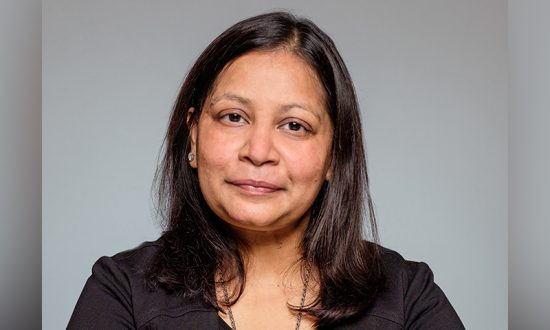Radhika Shrivastava is an entrepreneur in the higher education sector in India. With a mission to bridge the gap between employment and employability, and production of scholarship that informs management and the actual practice of management, she is currently at the helm of Fortune Institute of International Business (FIIB) – a top 40 B-School located in New Delhi, India. FIIB, an AACSB Member school, offers MBA and Doctoral level programs as well as several programs for executive education. It is approved by the AICTE, accredited by the NBA (for PGDM) and EDAMBA (for Doctoral Programs), and given equivalence by AIU.
There was a time when MBA courses covered game theory, securities valuation, and mergers and acquisitions. However, social entrepreneurship, impact investing, and climate finance are the trending hot topics at the moment. As of now, the importance of ESG and DEI in the classroom is always on the minds of deans around the world; and why not? Because bringing socially responsible people with diverse backgrounds and cultures together enriches the business school experience, enabling them to gain valuable perspectives and skills that can be transferred into the workplace.
What are ESG and DEI?
Environmental, social, and governance (ESG) data reflect the externalities an organization is generating for the environment, society, and corporate governance. Diversity, equality, and inclusion (DEI) is an ethos that recognizes the value of diverse voices and emphasizes inclusivity and employee well-being as central facets of success. Both are integral parts of the social fabric and determine a company’s worthiness and societal value. Moreover, they both serve as a framework for conscious consumerism and help businesses attract investors, retain customers, and improve financial performance.
Why should B-Schools care for ESG and DEI?
Business school students are the leaders of tomorrow, and integrating ESG and DEI into business leadership is increasingly critical for overall, long-term success. B-schools are modifying their courses to meet the demands of students and employers as the number of jobs focusing on environmental, social, and governance issues increases. As a result, the environmental, social, and governance (ESG) including diversity, equality, and inclusion (DEI) movement is sweeping through corporations and business schools alike.
How should B-Schools prepare students for ESG and DEI?
It’s time to learn to walk the DEI & ESG talk! The next-generation students are likely to be interested in schools that focus on ESG efforts, whether through corporate partnerships, values statements, or other activities. Diversity in our programs, our faculty, and our student body is more vital to our success than ever before. It is for this reason that business schools are becoming more sensitive to the need to cultivate leaders and faculty who reflect all aspects of human existence and ensure equitable educational access for an increasingly diverse population. The following are some ways business schools are preparing their students for ESG and DEI
Rethinking the curricula:
Integrating business, community, and the environment into a curriculum is indeed of the utmost importance. Sustainability management should be integrated into MBA programs. However, it’s one thing to put sustainability on the curriculum, and another to practice what you preach. In addition, to ensure equal representation, colleges should introduce women empowerment cells, inclusion councils, and other support groups to educate students about sustainable development goals.
Utilizing existing resources:
It is easy to understand ESG & DEI principles, guidelines, and structuring methodologies thanks to a variety of well-established resources. Business schools can ensure that they incorporate practical DEI & ESG preparedness into their educational programs by following the UN Sustainable Development Goals (SDGs), Human Rights guidelines, CDP disclosure system, and ISO Global Reporting Initiative (GRI) guidelines, as well as being consistent with their commitments to gender equality and zero waste.
Materiality assessment & stakeholder engagement:
A successful ESG and DEI strategy or report requires a Materiality Assessment and Stakeholder Engagement to identify the environmental, social, and governance issues that matter most to the organization. Students should be conditioned for ESG & DEI materiality research and developing a clear vision. Also, a periodical assessment of efforts should be tracked on a monthly or quarterly basis for a better understanding.
Well-rounded experiential learning:
A superior business education program emphasizes internships and experiential learning to allow students to gain practical experience. Particularly when it comes to cultivating talent in the fields of ESG and DEI, this is true. Additionally, more ESG business implementation research, thesis development, rigorous training, and professional development avenues are needed to build the skillsets required by the modern workforce and future leaders.
Events & Collaborations:
Higher education and industry can work together to develop energized students into fulfilling careers. As part of their commitment to shaping the transition to energy in alignment with their values, students should be encouraged to collaborate with local companies, renewable innovators, and social events. Aside from social initiatives, events like annual gatherings, inter-college fests, multicultural clubs, and group activities ensure that every student represents their college regardless of their culture, religion, or interests.




